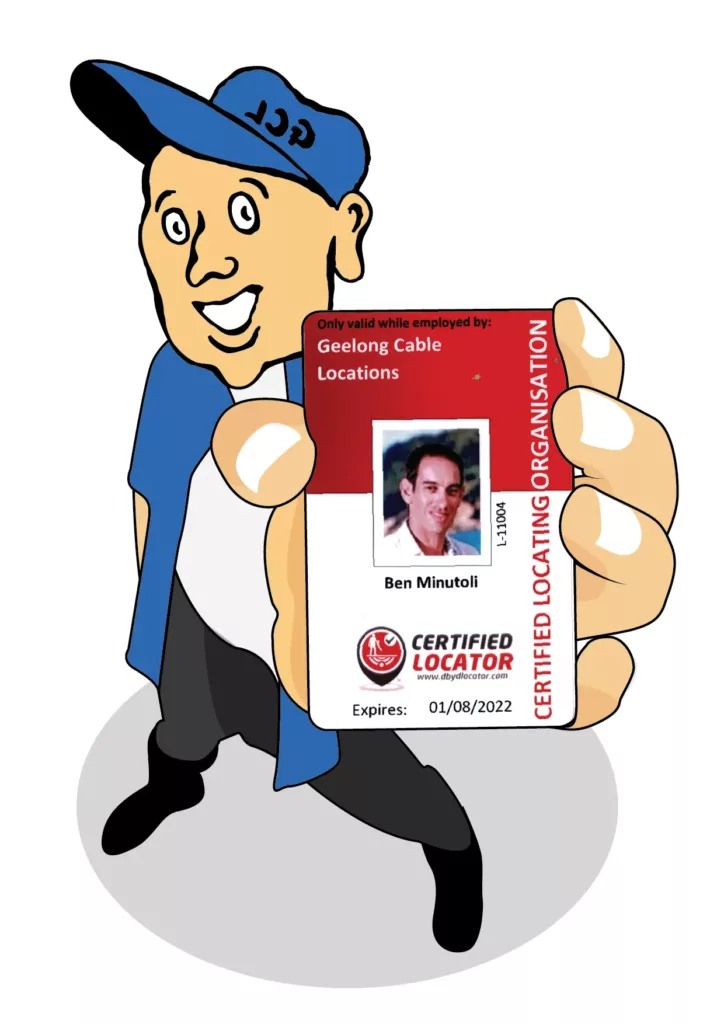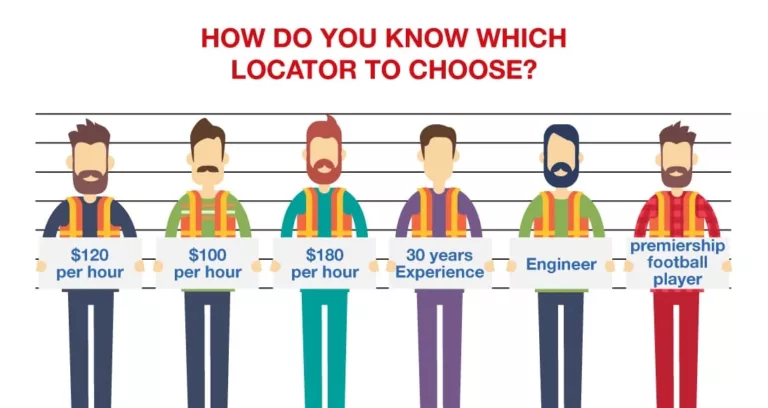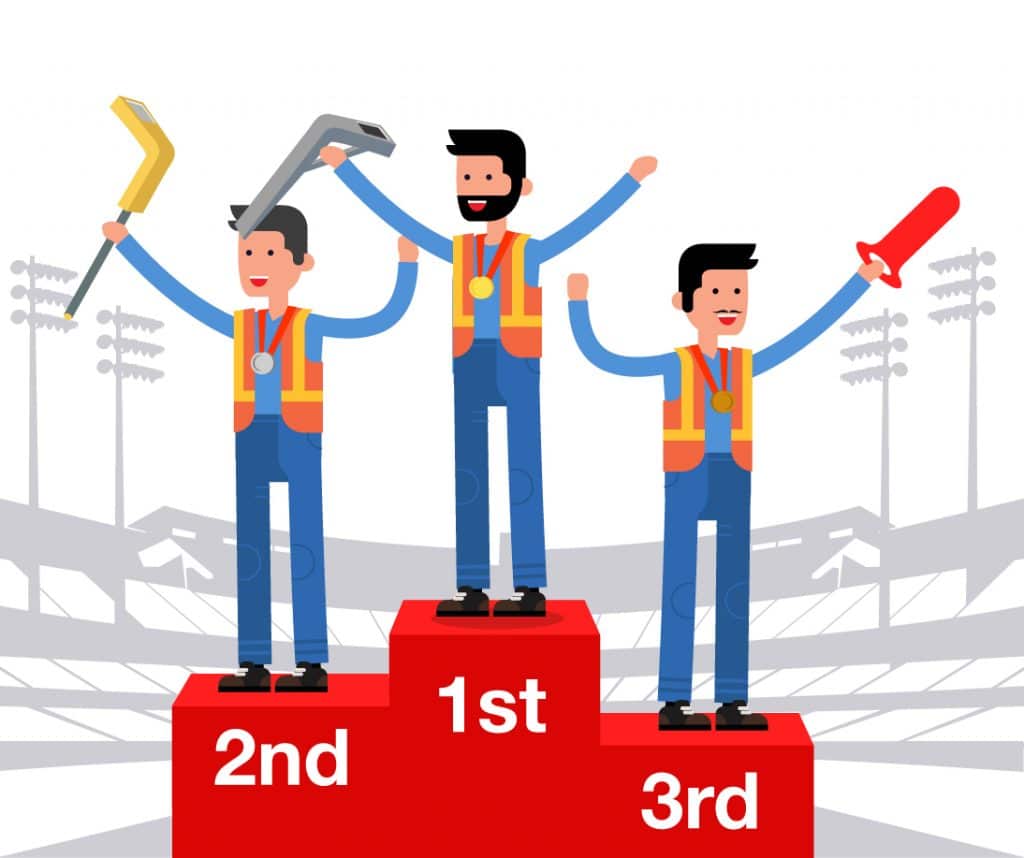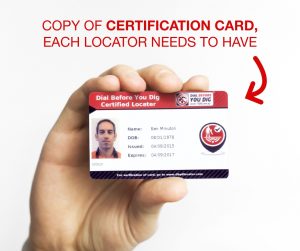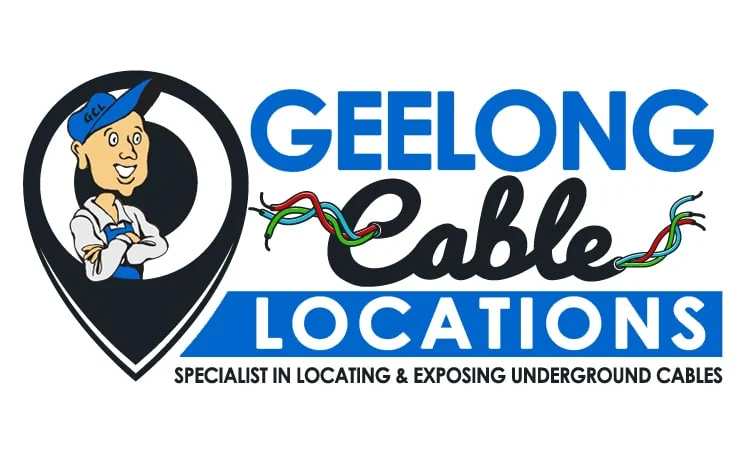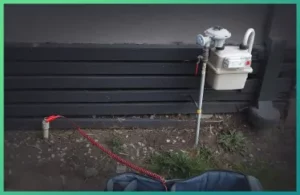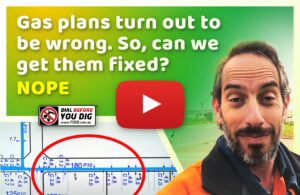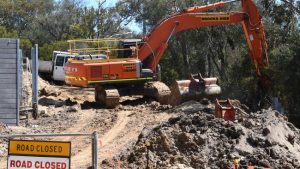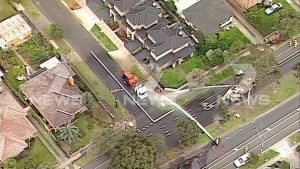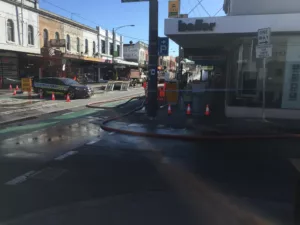So, you’re getting set up at your new construction site. You’ve gone and done your Dial Before You Dig request, and all the plans have now been emailed to you. You start to read over the plans and notice that there are underground utilities in the area of your works. Your past experiences with underground services on the sites you have worked at has taught you that the first thing you need to do is to get a locator to come out to the site, to tell you exactly where these underground utilities are. So you go and jump on Google or grab the Yellow Pages (no-one actually uses the Yellow Pages anymore, do they? Oh well, I better mention it for all the old school boys 🙂 ) and you look for a local locator that works in that area.
OK, so far can I say: excellent work, you’re being proactive and have done everything right to this stage.
So, you have this list in front of you that has, depending on where you are looking, say around 10 different locating companies’ names on it.
But which underground utility locator do you go with?
Now, this is the big question for you: of all those businesses that are listed, how do you know which one is the locating company that you should call to come out and locate where all the underground services are on site so that nothing gets damaged and everyone working on the site can stay safe?
Do you go for:
- The cheapest?
- The dearest?
- The one that is first available?
- The one that actually does answer the phone when you ring?
- The one that you have always used in the past?
- The one that has an office closest to your worksite?
The question I raise to you is: how do you know which one of these companies — or more importantly — which locating technician from the company you are calling is really going to be the best at what he does?
Choosing a locator now, compared to the past
If I was writing this 18 months ago, I would have said to you that you should ask to speak on the phone with the actual locator that is coming out to your job site, before he gets there. And then ask him questions like:
- What will you be doing when you come on-site?
- What techniques will you use?
- What issues do you anticipate coming across with this particular job site?
- How much locating experience have you had?
- How many hits have you had and what have you learned from each one?
I go through this, when I’d get calls or emails from customers, that had used us in the past and now wanted us to work for them in New South Wales or South Australia or other parts of Australia. I’d explain that we couldn’t help because we only service the state of Victoria, but that I could give them a few names of locators I knew from that state, but that they should still ask these questions of the actual locator coming out to the site.
Some clients were very thankful and took on this advice; others just said it was too hard and would take them too long to do it.
To which I would generally reply with something like, ‘But mate, you need to understand, you have a so-called “cable locating expert” coming out to your site. He is potentially going to be locating high-voltage power cables, gas pipes, water pipes, fibre optic cables, and an array of other potentially deadly underground services—so you should make sure that you have done your diligence before deciding who you will use.’
However, that is all now in the past.
Those of you who follow my blog posts will already know this, but for those of you who don’t, I can tell you that, about 12 months ago, Dial Before You Dig implemented a major change to the cable locating industry so that they can help out consumers just like you.
I have already written a detailed blog post about the Dial Before You Dig locator certification, so I won’t go over it all again.
But needless to say, 12 months on from when the DBYD locator certification went public, it is now easier than ever to find out if the locator you want to use is the most qualified and knowledgeable locator available in Australia.
But of the good locators, who do you choose? 
Now, of course, of those locators who have passed the Dial Before You Dig certification, there is still a big degree of difference, in regards to locating skill, experience, and knowledge.
But it’s no different from when you’re hiring a licensed plumber, surveyor, electrician or builder. Now, when you hire a DBYD certified locator, you will know that they have passed a minimum standard which they need to be able to call themselves an expert when it comes to locating.
And I’m sure I don’t need to emphasize the point that, when it comes to the service detection of underground assets, choosing a locator that has passed the minimum standard required to be a locator should be (at the very least) the minimum you should look for when deciding who to go with.
Now, if you’re trying to choose which locator to hire and you have a few that have passed the DBYD certification to choose from, then I’d still recommend questioning the locator who will be coming out to your site so that you know you are getting the right person for the job.
Are they really who they say they are?
Oh, I should also mention that when you find out who the locator is who will be coming out to your site, make sure you check him off on the register. Every person who has passed the test has their name listed on the DBYD locators’ website, which you can find here.
If you haven’t got time to jump online, then make sure they show you their card when they get to the site. I have started to hear rumours of locating companies getting one locator to pass the test so that the business is listed on the website, but then sending out a different locating technician from the one who has passed the test—meaning that, instead, you get someone coming out who has failed the test or hasn’t even sat it.
On the side you will notice my certification card; this is what the card should look like. As you can see it is a photo ID, so make sure you see the actual card—or at least see a digital copy of it—when the locator turns up to site and that it is the person in the photo that you have on your work site.
I have always used the same guy, for all my locating
Now, for those of you who are loyal to a particular locating technician or even a locating company that you’ve always used, can I say on behalf of all 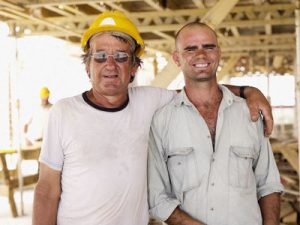
So if you are still using the same guy you have always used then thank you. BUT, can you please bring up the point with him that you need him to get his DBYD certification — if, that is, he hasn’t done it already.
I don’t care how nice a guy he is, or if you go to the pub with him on a Friday night, or that he lives around the corner from you, or that you’ve never used anyone else. He needs to go and get his certification so that you can have the peace of mind that you’re using someone who has passed the minimum standard that has been set by Dial Before You Dig.
What happens if you use someone that is not certified?
I don’t like using scare tactics but now and then I do have, to try and emphasize my point.
Let’s say you ask this locator, that you have always used, about the DBYD certification and he says that he hasn’t got time, or that he did it and failed, or he might say that he hasn’t missed too many underground utilities, so he doesn’t need to go and get it. And you say, “OK,” and you then go on and continue to use him.

Now yes, it was a plastic gas main—so it’s highly likely that even if you’d hired a different locator who had passed his certification, he could easily have missed it as well. But, if that happened then, when you end up in court your first defense is simply that you’d hired a locating contractor who had passed the highest level of certification available for professional locating contractors within Australia, to locate the underground services on your worksite—and the fact that he missed the gas main was out of your control.
I don’t like talking about this, “what if?” kind of stuff, and we could just keep going back and forth on whether or not the pipe could have been detected and who really would have been at fault—but we’d be getting well off-topic.
The fact is that if the locating technician you want to use hasn’t got their certification, then, as you are their customer, the ball is in your court to bring it up. You might need to be the one to tell them, that you want to keep using them, but that they need to get certified—and if they don’t, then you might need to start using a different locator.
Be ready for what the cable locator will tell you
I can tell you from what I’ve heard in the industry—from both locators and clients that use other locating companies—that, when you do raise the question about the DBYD certification, you’ll find that the response you get back will probably fall into three categories.
-
They have attempted the test but have failed.
If they say this, then don’t be too disheartened. The test is not designed to be a walk in the park. You should feel content that they are at least on top of it, and are actually aware of what’s going on in the industry. Just confirm with them that they’ve booked to sit the test again, or that they’ve enrolled in one of the industry-run locating courses so that they can learn and get a better understanding of the principles and techniques of the location and detection of underground utilities. You’ll then just need to make the business decision of whether you still go on using them, especially now that you know they have failed. Or whether you explain to them that you’ll have to skip using them on this particular job and instead use someone else, but reassure them that you will use them again once they are certified.
-
They have been informed of the certification but are not doing anything about it, and in fact, think it is a bit joke—and they tell you not to worry about it, that it will all just pass by soon and no-one will remember about it.
You’ll find this answer is most common among those who are from regional or country areas. (And being from Geelong myself, I’m allowed to give those guys crap, aren’t I?) You’ll find they will most likely not have their finger on the pulse of the industry and are probably unaware that DBYD had worked on this certification for over two years. That it has been live now for 12 months, and that the industry is abuzz with talk about it. I’d be wary of a locator like this: it’s highly likely that he’s still using the same gear he started with 5-10 years ago and that he hasn’t completed any course, or done any training, or gone to any events, or even just read some of the material out there these days, that can help him improve his skills.
Now, don’t get me wrong; I’m not saying he’ll be a bad locator—and, when it comes to this certification, in his defense, he’s probably just a little confused. He may very well just be thinking that it’s another Telstra course that you have to do (like the various ones Telstra brought out that you had to do in order to be allowed to locate underground Telstra assets). I’d even probably agree with him that, in the past, they’ve been a bit of a joke. But this locator certification has got nothing to do with Telstra; it was created and is managed by Dial Before You Dig—so I’d make sure you emphasize the point that you want him to get certified.
-
They have no idea what you’re talking about when you mention the words ‘Dial Before You Dig certification’.
I’d be staying well away from this kind of locator. Dial Before You Dig has been heavily promoting it. Also, Telstra made it mandatory, that you have to pass the certification to be able to be accredited with them to locate their underground cables and they’ve sent numerous emails and letters out to their accredited locators about it. If the locator that you want to use really has no idea what you’re talking about when you mention ‘Dial Before You Dig Locator Certification’, or even ‘Accredited Dial Before You Dig Locator’ as some are referring to it as then slowly back away and please take my advice: don’t use him again—this is not the kind of person you want telling you where underground optic fibre cables are before you use a 20-tonne excavator.
Some of the locators out there are not going to be happy with me
I know I’m going to piss off a few locators by doing this blog post. I have been in and around the industry for some 18 years now and, in that time, I’ve made some great friends who are either locating contractors or who work within the locating industry. And yes, I know some of them will get very annoyed with what I have written here—but guys, I’m sorry to say, I really don’t give a shit anymore! This is for the good of the industry as a whole.

The certification has been out for 12 months now; that is more than enough time to get used to it being here and to get yourself through the test.
I’ve heard all kinds of excuses and bitching about it.
“This is just something that NULCA has pushed through”
Guys, this certification has nothing to do with NULCA. Yes, NULCA has thoroughly reviewed it and given it their endorsement, because they feel it is a good thing for the industry. But I know for a fact that NULCA gets nothing out of this certification. DBYD were the ones to instigate it all; they are the ones who set it up and they are the ones who manage it—it has nothing to do with NULCA. (Also for those of you who don’t know, NULCA—which stands for the National Underground Locating Contractors Association—is a not-for-profit association that was created a bit over ten years ago with the aim of lifting the standards of locators across the industry.)
“Dial Before You Dig have just done this to make money”
You do realise, don’t you, that DBYD is a not-for-profit organisation? Also, I’ve heard some crazy figures from them about what the cost was to create this test and to implement it. Now I’m not going to go and audit their books, so I’ll just have to take their word for it, that the total figures they have spent are correct. But if they are, then from the real rough numbers I’ve done in my head, I’ve worked out that they will have to get every locator in Australia to go through the test before they can break even for what the costs are. So I highly doubt they are doing this to make money. But, again, let me re-emphasise the point: they are a not-for-profit organisation. So yes, they have spent a heap—but if it means it improves the industry, then it’s worth it.
“The test itself is crap and far too confusing”
You may be surprised that I’ve heard this from both guys who have passed and guys who have failed the test. And while I do, sort of, agree that some of the questions are poorly – worded, I can tell you that when you read the questions, you do understand what the question is that they are asking you, and what they are trying to get you to say or do in the answer.
And of course, as you all know, in Australia, even though we do all speak English, as you go from one end of the country to another, you find that we do all have slightly different ways of saying things and use different terminologies and different sayings. So, as you can imagine, it’s no different when it comes to locating. The way I may say that I do a certain technique, compared to say, someone in Perth or Brisbane, could be quite different. However, the systems we are using and the methods we use are, in fact, the same. And I don’t doubt that over the years, as this certification is refined, simple things like different terminology will be weaned out of it.
What is the real reason to have this DBYD certification?
But what those locators that are complaining about don’t understand is the real reason behind all of this.
If you do ask them if they have their certification or not, and they give you one of those standard 3 responses or some other complaint, what I suggest you do, if you have time, get them to give this a try.
What you need to do is, ask them to step out of their shoes for just a moment, and step into the shoes of one of their past customers and then run through a little scenario with you.
Tell them to imagine that they are about to start to;
- building a block of townhouses, or
- they are doing an extension of a home,
- renovating an office block,
- adding another lane to a freeway,
- building a roundabout,
- laying a new water main,
- or even just putting up a fence.
If they have any experience in the locating industry, then they would surely have worked for someone doing one of these projects, if not all of them, so it should not be that hard for them to imagine the job that needs to be done, from the customer’s point of view.
Now, tell them, while they are in their customer’s shoes, and are thinking about that particular project that they are doing, to think of all the steps and processes they need to take to get the whole job done.
Ok, now that that is done, get them to take a look at what percentage of those steps are related to underground service detection—very little, right?
And yes, everyone will admit it is a highly relevant and very important role in the project and a mistake here can affect the entire job, no matter how many days, weeks, or months it’s scheduled to take to complete the job. But, in the whole scheme of things, when you look at those jobs listed above, the aspect of actual underground service locating is minuscule.
Now, make sure they stay focused, as this is where you start to lose them and they lose interest and talk about other things, but this is the important part, so try hard to keep them focused and thinking about the project, while in their customer’s shoes.
Tell them, while you’re still in the customer’s shoes, I want you to go through and try and work out how you would decide which underground utility locator you would choose and come out to your site, to perform this important, but a tiny part of the whole project.
As soon as you have told them that, tell them to STOP and forget everything they know about locating. They need to get back into their customer’s shoes and from the point of view of the customer, who hasn’t been locating for several years, how would you know who you should choose to come out to your site?
It’s hard to know who you should pick, isn’t it?
This is why I had the list of questions I use to give customers to ask locators, back before this certification was around.
So tell them, this has all been a hypothetical scenario, however, this is the issue every single project manager or contractor goes through on every single job site they work at—and this is one of the main reasons why DBYD created the certification. So those contractors that need an asset locator on site, to help out, will now be able to pick from locators that have at least qualified to be able to call themselves professional locators.
The other main reason is obvious, it is to set a benchmark of skill and equipment requirements to be able to go out and do the job of a professional locator.
But I don’t think I need to go through that, as that should be pretty self-explanatory.
DBYD always has the customer’s best interest at heart.
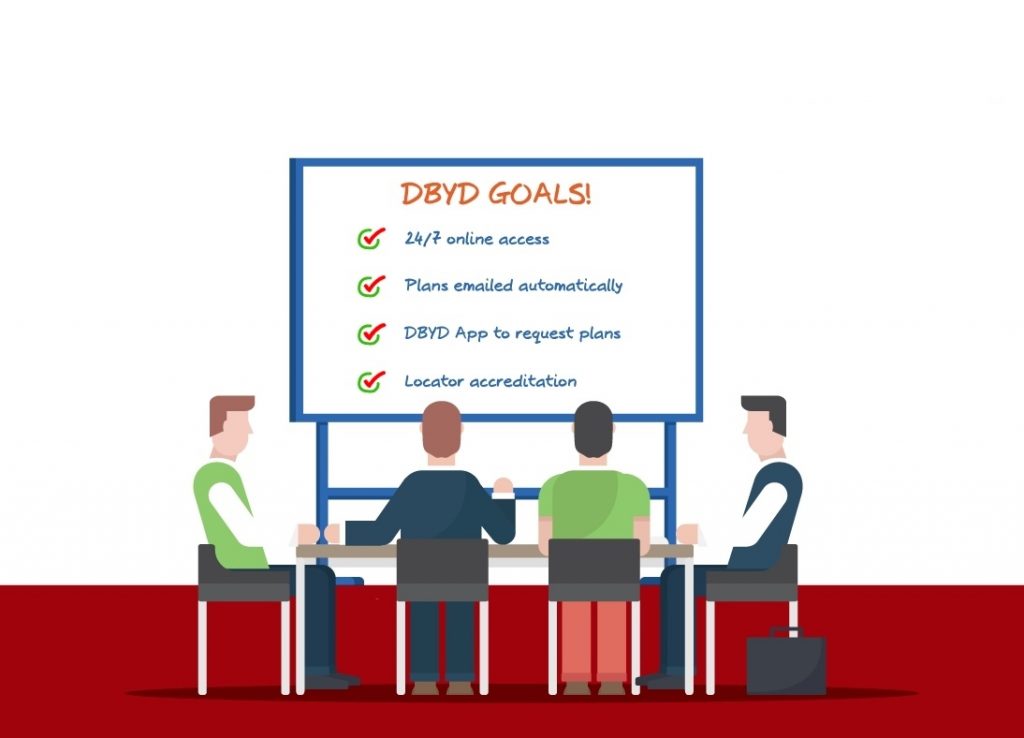
- They moved from just taking inquiries over the phone to taking them via the web — this way customers can put requests in 24 hours a day, 7 days a week 365 days a year.
- They added automation of plan requests to customers so that instead of waiting 48 hours to get plans back, you could get them back within a few minutes of putting the request in.
- They built an online app for putting applications in for plans so that when you were out on a site you could just open your app and put your request in, rather than having to do it when you got back to the office.
- And with this Locator Certification, that they introduced 12 months ago, they have now set a minimum standard for locating technicians, so that, if you want to get a locator out to your site, you’ll know whether or not the locating technician you’re going to use has met the benchmark for locating ability.
This is not an advert for Geelong Cable Locations, to do your locating
What you may be surprised about is that this whole post, if you haven’t worked it out yet, has nothing to do with Geelong Cable Locations.
I could have brought up the point that I was the first in Victoria to achieve this certification, or that, to date, we are still the only company in Victoria to have more than one locator qualified. But I’m not writing this to promote myself or my guys. I don’t care who you use—so long as you use someone who has, at the very least, passed the minimum standard there is to locate the underground assets on your job site.
Now yes, of course, if you do need a locator to come out to a job site within Victoria, then I’m more than happy to help—and all our locating vehicles come equipped with all the latest locating equipment available, including Ground Penetrating Radar, for which we don’t charge any extra.
But again, I’m not writing this to promote my business. I really don’t care if you use me or my competition—so long as the guys you use are DBYD certified locators so that you are at least getting the right man out to the job.
So what’s in it for Geelong Cable Locations?
So why have I gone to all this effort to write this long detailed post?
Well, two reasons;
- Firstly, again those of you that follow my stuff will already know that I constantly put out content that is to help the locating and construction industry as a whole. I have been at this game for many years and am happy to share my experience and knowledge if it will mean it will help reduce, the number of underground utilities, that get damaged each day out there.
- I’m sick and tired of hearing about service locators doing locating jobs and making stupid mistakes, that just shouldn’t be happening. If doing a post like this, means I can help get the word out there and that you now know you can hire someone that has a certification in locating, then it has made my time and effort here worthwhile.
But as a locator, there is only so much I can do to help improve the industry. You as the contractors employing these locators, need to start taking some of the responsibility for the guys you are hiring, to come out to the job sites you are working on.
I don’t want to keep hearing, “yeah we had a locator out and he missed this or that and it was his fault”. I want you to say, “yes we hired a locator, but I was lazy and didn’t bother to check if he was qualified or not, and yeah he missed some cables in the area, but hey it was my fault because I hired the wrong guy for the job”.
Ok, so maybe I am asking too much for you guys to say that, but there really isn’t any excuse anymore as to why you would be employing locators to come out and tell you where the underground assets are when they can’t prove they have the skills or training available to do so.
Yes, in the past you could simply say, you had no way of knowing if the guy you had out onsite was any good or not, but now you do.
Well…ok, you still can’t tell if they are a good locator or not, but you do know they have passed a standard set by Dial Before You Dig, so that will give you some assurance that the guy should be qualified enough to be able to do the job right. Whether the guy you have coming out is willing to put the effort in to get the job done right, is a whole other issue, but I think I will leave that post to another day.
I know I have already given the link earlier but, again, if you’re looking for a list of everyone in Australia, who has passed the DBYD certification, then you can find them here www.dbydlocator.com/certified-locators.

